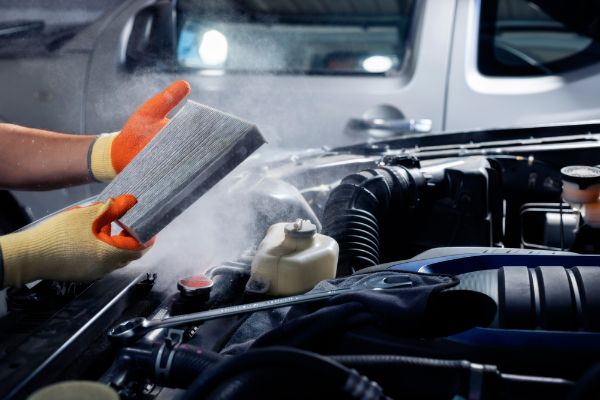When it comes to vehicle maintenance, most drivers think about oil changes, tire rotations, or brake pads. But there’s one small component that plays a big role in your vehicle's performance and fuel efficiency, the air filter. If you've been putting off air filter replacement, here's why it’s time to take it seriously.
What Does Your Vehicle Air Filter Actually Do?
Every time you drive, your engine pulls in air to mix with fuel for combustion. That air isn’t always clean. Dust, pollen, bugs, and even debris from the road can get sucked into the intake. Your vehicle's air filter acts as a shield, trapping those particles before they enter the engine.
Over time, the filter becomes clogged with dirt and contaminants. When that happens, it restricts airflow, forcing your engine to work harder and burn more fuel. It can even impact acceleration and cause your vehicle to run rough.
Signs You May Need an Air Filter Replacement
Not sure if your air filter is past its prime? Common symptoms include reduced fuel economy, sluggish acceleration, unusual engine sounds, and visible dirt or discoloration on the filter itself. You may also experience rough idling or a check engine light if airflow becomes too restricted. While some of these issues can stem from other problems, a clogged air filter is often a quick, low-cost fix worth checking first.
How Often Should You Replace It?
Most manufacturers recommend replacing your air filter every 12,000 to 15,000 miles, but driving conditions matter. If you spend time in heavy traffic, dusty roads, or polluted urban areas, your filter may need replacement more frequently. During routine maintenance or oil changes, it’s easy to inspect and assess the filter’s condition.
At Engine Tech Inc, we offer honest inspections. If your filter doesn’t need changing, our experts will let you know. If it does, Engine Tech Inc takes care of it quickly and affordably.
The Real Benefits of a Clean Air Filter
Replacing your air filter doesn’t just protect your engine, it enhances your entire driving experience. Here’s what you gain:
- Better fuel economy
- Improved acceleration
- Extended engine life
- Fewer emissions
- Smoother performance
Don’t Overlook This Easy Fix
An air filter replacement is one of the simplest and most cost-effective ways to keep your vehicle running smoothly. Yet, it’s often overlooked until performance starts to drop. At Engine Tech Inc, we make it easy, with quick inspections and no pressure.
If it’s been a while since your last air filter check, or you’re noticing your vehicle isn’t performing quite like it used to, come in for a quick visit. Your engine and your wallet will thank you.

